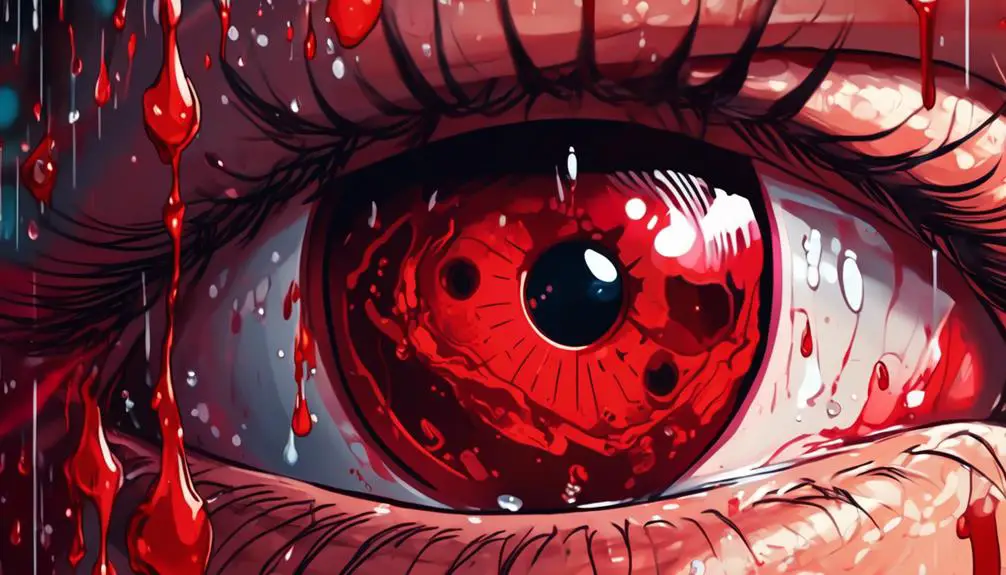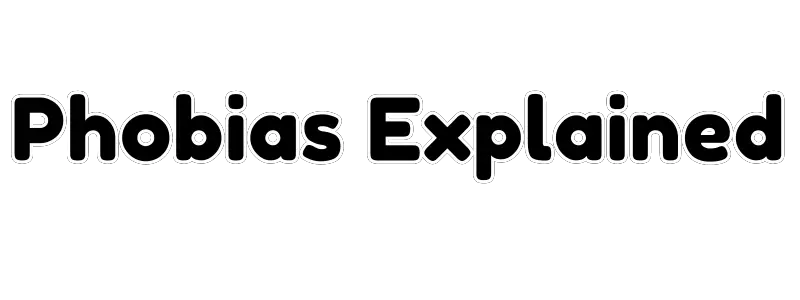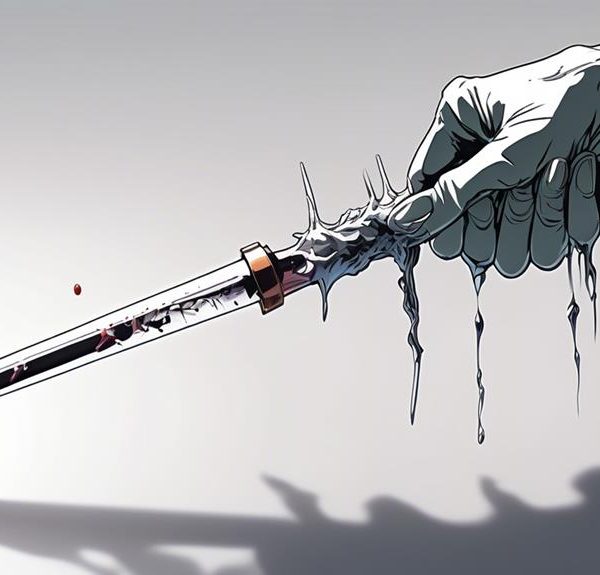Peek into the unnerving world of hemophobia, where even a droplet of blood can trigger an overwhelming surge of fear and anxiety.

What Is Fear of Blood Phobia
You've probably encountered moments that make your skin crawl, but have you ever considered the possibility that a mere glimpse of the crimson life force could send shivers down your spine? This is the reality for those suffering from hemophobia or the fear of blood.
It's more than just feeling a bit squeamish at the sight of a minor cut or scrape. This is a deep-seated, irrational fear that can trigger intense anxiety and even physical symptoms.
But what causes this fear, and how does it impact the lives of those affected? Let's peel back the layers to understand this less talked about phobia.
Key Takeaways
- Hemophobia is an intense, irrational fear of blood that can significantly impact a person's daily life.
- Approximately 3-4% of the population experiences hemophobia to a debilitating degree.
- Hemophobia can have both psychological and biological roots, with traumatic experiences and cultural influences playing a role in its development.
- Recognizing symptoms of hemophobia, such as intense fear, physical symptoms, avoidance behaviors, and seeking professional help, is important for managing the phobia.
Understanding Hemophobia

Delving into hemophobia, it's crucial for you to understand that this fear, often categorized as an intense, irrational dread of blood, can significantly impact a person's daily life. You might think it's a mere discomfort with blood, but it's far more serious. Hemophobia misconceptions are rampant, often downplaying the severity of the condition.
This phobia isn't just about fainting at the sight of blood; it's about a persistent, pervasive fear that can lead to avoidance behaviors. You might find yourself avoiding medical procedures, refusing to watch certain TV shows or movies, or even worrying excessively about injuries. This fear can limit your life, putting unnecessary restrictions on your activities and experiences.
As for hemophobia prevalence, it's more common than you might think. Research suggests that around 3-4% of the population experiences this fear to a debilitating degree. That's millions of people globally who are dealing with this phobia on a daily basis. But, unfortunately, due to the misconceptions surrounding hemophobia, many suffer in silence.
The science behind it suggests a possible evolutionary link – our ancestors who reacted strongly to blood were more likely to survive injuries and pass on their genes. However, in the modern world, this survival instinct can become a phobia, a fear that's out of proportion to the actual danger.
Understanding hemophobia is the first step in combating it. By debunking the misconceptions and recognizing its prevalence, you can start to empathize with those affected and raise awareness for this common yet often misunderstood phobia.
Common Causes of Hemophobia

Understanding what triggers hemophobia is just as crucial as understanding the phobia itself, as it often stems from a mixture of genetic and environmental factors. You may wonder how an ordinary sight of blood can send someone into a panic. Well, let's dive into the common causes.
Traumatic experiences are a leading cause. It's not unusual for individuals to develop a fear of blood after a distressing event involving blood, such as a severe injury or a complicated medical procedure. The mind, in its attempt to protect itself from repeating the unpleasant episode, can develop a phobia. You'll find it's a natural response to a traumatic event.
Cultural influences can also play a role in forming this phobia. In some societies, blood is associated with danger, death, or harm, which can instill a fear of blood in individuals. If you grew up in such a culture, you might be more prone to hemophobia. It's important to understand that it's not your fault, but it's how your environment has shaped your perceptions.
Sometimes, hemophobia can be rooted in a more biological reason. For instance, fainting at the sight of blood, a condition known as vasovagal syncope, can lead to hemophobia. The fear of fainting can become associated with the sight of blood, causing an intense phobia to develop.
Recognizing Symptoms of Hemophobia

Recognizing the signs of hemophobia is crucial, as many people mightn't even realize they're suffering from this fear until they're confronted with a triggering situation. You may think it's quite normal to feel squeamish at the sight of blood, but when this feeling escalates to a level where it disrupts your daily life, it's worth considering whether you're dealing with something more serious such as hemophobia.
Phobia triggers vary from person to person, but with hemophobia, they're usually linked to blood, injuries, or medical procedures. You might feel an intense, irrational fear when seeing blood, either in reality or on film. Even the thought of blood may cause you to feel faint or nauseous. This fear can manifest itself through physical symptoms such as dizziness, sweating, rapid heartbeat, or even fainting.
Symptom management is an essential part of dealing with hemophobia. It's about understanding and recognizing the signs of this phobia in yourself or others. If you notice that you're avoiding certain activities for fear of encountering blood, or if you're experiencing intense anxiety when faced with blood, these could be signs of hemophobia.
It's important to remember that it's okay to seek help. Many people live with phobias and there are a number of treatment options available that can make a real difference. You don't have to face this fear alone. Reach out to a mental health professional who can guide you through the process of understanding and managing hemophobia. It's the first step towards regaining control over your fear.
Psychological Impacts of Hemophobia

Living with hemophobia can take a significant toll on your mental health, often leading to a range of psychological impacts that extend far beyond the immediate fear of blood. You may find yourself constantly on edge, with the stress implications of this phobia making everyday tasks much more difficult to manage.
The constant state of high alert can lead to chronic stress, which in turn can have serious health implications. It can disrupt your sleep, lower your immune system's capacity and negatively impact your overall quality of life. It's not just the physical symptoms of stress that you need to worry about. The mental and emotional strain can lead to feelings of helplessness and hopelessness, which can make it even harder to seek help and address the issue.
One of the most common anxiety triggers for those with hemophobia is the fear of encountering blood unexpectedly. This could be something as simple as a paper cut or a bloody nose. This constant dread can lead to avoidance behaviors, such as refusing to participate in activities that might result in injury, or even avoiding medical appointments for fear of seeing blood.
It's important to remember that you're not alone in this. Hemophobia is a common fear, and there are resources available to help you manage and potentially overcome it. It's also critical to seek help if you feel your fear of blood is causing significant stress or anxiety. With professional guidance, you can learn strategies to cope with your fear and reduce its impact on your life.
Hemophobia and Daily Life

Navigating daily life with hemophobia can present unique challenges, as the fear of blood can intrude on even the most mundane tasks. Routine activities like cooking, shaving, or even watching TV can become anxiety-inducing if there's a chance of encountering blood.
One of the most significant hurdles for hemophobes is the challenge of blood donation. This altruistic act can be a source of terror if the sight or even thought of blood induces panic. You may feel helpless, wanting to contribute to this life-saving cause but held back by your fear. This apprehension can also translate into a fear of medical procedures where blood may be present, such as routine check-ups or necessary surgeries.
Hemophobia's social effects can also be felt in your daily life. Friends and family may struggle to understand your fear, which can lead to feelings of isolation or misunderstanding. Social gatherings can become a minefield if activities involve a risk of injury. Even a simple trip to a restaurant can be stressful if a menu item is described as 'bloody' or 'rare'.
But remember, you're not alone. Many people grapple with this fear every day. There are resources and treatments out there that can help you manage your hemophobia, and it's okay to reach out for help. Understanding and addressing this fear can help you reclaim control over your daily life, reduce stress, and improve your overall wellbeing.
Treatment Options for Hemophobia

While the impact of hemophobia on your daily life can be daunting, it's important to know there are several effective treatments available that can help manage and even overcome this fear. You're not alone in this, and help is available.
One widely-used treatment option is Exposure Therapy. It gradually and repeatedly exposes you to the object of your fear, in this case, blood, in a controlled and safe environment. The idea is to decrease your fear response over time, helping you to develop healthier reactions and coping mechanisms. This therapy has proven to be highly effective, but it's crucial to have it administered by a trained professional.
Medicinal Interventions can also be an effective treatment for hemophobia. Medications like anti-anxiety drugs or beta-blockers can help manage physical symptoms of fear, like rapid heartbeat or trembling. It's worth noting, however, that medication is typically used in combination with therapeutic interventions, not as a standalone treatment. Always consult with a healthcare provider before starting any medication.
Self-help strategies can also be beneficial. These include practicing relaxation techniques such as deep breathing or meditation, and adopting healthier lifestyle habits such as regular physical exercise, which can help reduce general anxiety levels.
Coping Strategies for Hemophobia

Managing your fear of blood might seem overwhelming, but adopting specific coping strategies can significantly ease this journey, empowering you to live a less anxiety-ridden life. It's imperative to understand your phobia origins to effectively manage your fear. Perhaps your hemophobia stems from a traumatic event, or it could be a learned fear from childhood. Identifying the root cause can provide valuable insights into your specific triggers, which is the first step towards effective coping.
One of the most effective coping strategies is exposure therapy. It's a gradual process that aims to reduce your fear response by gradually and repeatedly exposing you to the object of your fear—in this case, blood. You'll start with less threatening situations, like looking at a picture of a small cut, progressively moving towards more challenging scenarios, such as watching a medical procedure. It's crucial to remember that exposure therapy should always be conducted under the guidance of a professional therapist.
Mindfulness techniques can also be beneficial. By focusing on the present moment and actively engaging in relaxation exercises, you can train your mind to respond less anxiously to the sight of blood.
While these strategies might seem challenging initially, consistency is key. It's also important to remember that everyone's journey is unique—you might need to try different techniques before finding what works best for you. Don't be discouraged if progress seems slow. Overcoming a phobia takes time, but with patience and determination, you can significantly reduce your fear and live a more comfortable life.
Conclusion
You're not alone in your struggle with hemophobia, or fear of blood. It's a common phobia that can cause significant distress and impact daily life.
But remember, it's treatable. There are numerous treatments available, including therapy and medication.
With time, patience, and the right coping strategies, you can overcome your fear. Don't let hemophobia control your life.
Reach out and seek help – you're stronger than your fears.



Sign up